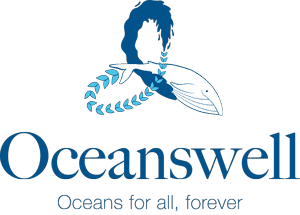By Nadiya Azmy and Arpana Giritharan
The surge of COVID-19 cases globally led to the Sri Lankan government imposing an islandwide curfew on the 20th of March 2020. Following this, curfews of varying nature were imposed in different parts of the island up until the 28th of June 2020. Everyone was unprepared and confined to their homes, which dramatically changed lives, but more so that of the most vulnerable communities.
We began to hear stories of how the lockdown was impacting daily wage earners and small business owners across the island leading us to question the impact on local fishing communities who are a key part of the work we do at Oceanswell. No sooner was the curfew lifted, we got to work designing and launching a study to understand the effects of the pandemic and specifically, the curfew on fishers, fish processors and fish sellers/traders.
With a dense population of 21 million and a coastline spanning 1340 km, Sri Lankan fishing communities are both geographically and culturally diverse. Taking this into consideration, we set the ambitious goal of conducting 400 surveys from across the island in a period of one month in an attempt to capture as much of this variation as possible.
Given our inability to bring all the research assistants physically together due to the ongoing pandemic, we held a training session via video conferencing facilities along with Dr. Asha de Vos, and our collaborator Dr. Sangeeta Manghubai, the Director of the Wildlife Conservation Fund’s Fiji Country Programme. The two of us, Nadiya and Arpana, were tasked with leading the logistics and everyday dealings with the research assistants – a new experience with a lot of learnings. We also organized informal virtual networking sessions for our research assistants to allow them to get to know each other and meet like-minded individuals in the marine conservation space from across the country. Once everyone was on board and our surveys were ready (translated into English, Sinhala and Tamil – all three local languages) we made carefully curated packs for each research assistant which included their allocation of surveys, a research assistant handbook and all they needed to stay safe in the midst of the pandemic.
Shortly after restrictions eased and Sri Lanka began to return to normality, our fantastic team of research assistants quickly mobilized and began carrying out surveys in their own backyards. The field team included marine enthusiasts from a range of different backgrounds, including students and fishers.
Each research assistant was asked to complete five surveys per day, allowing sufficient time to establish a rapport with those they were surveying. The importance of relationship-building was emphasised over all else – to get honest answers we needed to build trust. Given the urgent nature of our project, we selected research assistants with existing relationships within the fishing communities which resonates with Dr. Asha’s vision of nurturing local heroes on every coastline. Each research assistant was assigned a field partner and we were happy to receive positive feedback from them about the memories they shared with each other and with the local fishing communities.
A month and a half later, we have 415 surveys from fishers, processors and sellers from across the island. As our aim was to understand the impacts of the COVID-19 lockdown through the eyes of the most vulnerable communities, the majority of our surveys were from small-scale fisherfolk and 30 % of our data were from women involved in fisheries. With the help of our 14 research assistants, we have successfully concluded the data collection phase and are excited to unpack our findings through the analysis phase.
We are grateful to the New England Aquarium’s Marine Conservation Action Fund for funding us to complete this timely and important research. Furthermore, we are incredibly thankful to Dr. Asha de Vos and Dr.Sangeeta Mangubhai for their support and guidance throughout the project and Mrs. Jegatheeswary Ehamparam Gunasingham for coordinating our research assistants in the North and East coasts. Above all, this project would not have been possible without the hard work of our fourteen research assistants comprising Kaushalya Balasooriya, Dilini Gamage, Manuja Hendawitharana, Iflal Ilyas, Thamiliny Kaneshalingam, Mohammed Mujas, Kajanthini Rajanalendran, Shalanka Ranjula, Rifdha Riswan, Antony Santhosh, Saranya Sinnathurai, Sathiavakeesparan Sivanthan, Abilagini Vickraman and Muththulingam Yuhinthan whose efforts to move the project forward is appreciated greatly.





Hi Nadiya and Arpana, I have read your post with a lot of interest. The World Bank Sri Lanka office is planning to conduct a bio-economic modelling study to understand local economy wide impacts from various external shocks to the fisher community. We are ye to commence the work but once completed, the publication will be open to the public. One of the shocks we are looking at is the COVID pandemic. We had looked at it from a very macro level with selected interviews conducted via phone to understand what impacts COVID and lockdown had on the fisher communities. Do you think we could access your report if it is already published? Would be really helpful to hear from you, thank you and Best Regards. Nadeera
Hi Nadeera. Please email us on [email protected] to know more.